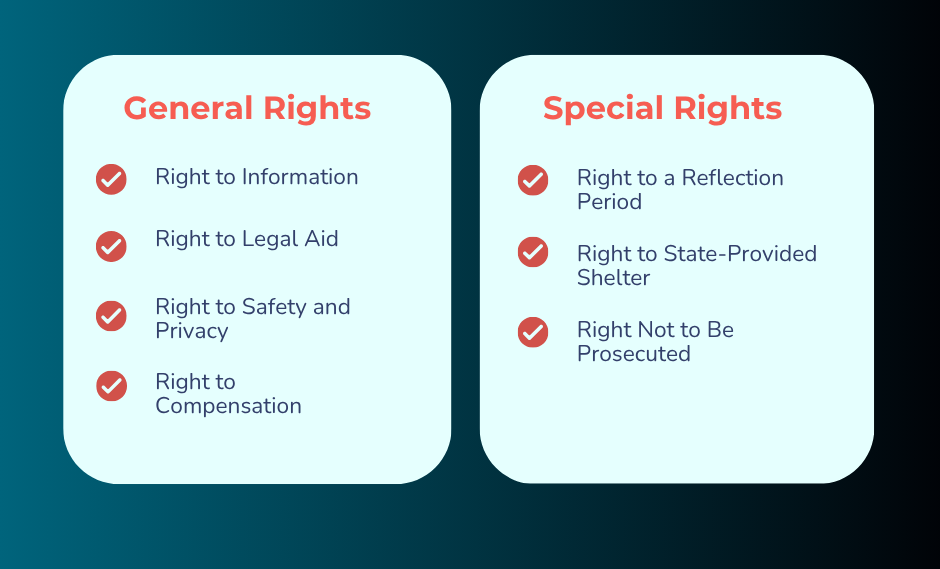

Human dignity is inviolable it must be respected and protected
What is Human Trafficking
Human trafficking is a serious crime against individuals and a modern form of slavery affecting millions worldwide. In a global context, this issue involves the exploitation of women, men, and children who, due to social and economic vulnerabilities, fall victim to various forms of trafficking. The primary forms of exploitation include:
- Sexual Exploitation
- Labor Exploitation
- Forced Begging
- Trafficking for Criminal Activities
- Trafficking of Pregnant Women for the Sale of Newborns
Traffickers often use deception, false job offers, and promises of a better life to lure victims. Once trapped, victims are deprived of their freedom through threats, violence, and manipulation.
Human Trafficking in Bulgaria
Bulgaria is one of the main source countries for victims of human trafficking within the European Union. Our citizens often fall victim to sexual exploitation in countries where prostitution is legalized or to labor exploitation in sectors such as agriculture, construction, and the hospitality industry in countries like Germany, Italy, and Spain. They are forced to work under inhumane conditions, either without pay or for minimal wages. Many of these individuals become trapped in criminal networks that operate under the guise of legitimate businesses.
Due to economic growth and the increasing demand for foreign labor, Bulgaria is also becoming a transit and destination country for trafficking victims. Greater vigilance is required to identify exploitative practices in sectors such as tourism, construction, agriculture, services, and domestic care, where more and more third-country nationals, including those from Nepal, Bangladesh, Uzbekistan, Kyrgyzstan, the Philippines, and others, are being employed.
The Global Scale of Human Trafficking
According to the International Labour Organization, around 27.6 million people worldwide are trapped in modern slavery, including human trafficking victims. In 2022, over 10,000 trafficking victims were registered in the European Union, though the actual number is likely much higher, as many cases go unreported. Human trafficking is a complex issue that violates fundamental human rights and leaves lasting physical and psychological trauma on its victims. Addressing this global crisis requires coordinated efforts between governments, international organizations, and society as a whole.
The Role of the Internet in Human Trafficking
Traffickers are increasingly using the internet and social media to recruit victims, particularly among young and vulnerable individuals. Europol has reported a rise in the use of online platforms for trafficking, a trend that became especially evident during the COVID-19 pandemic.
Prevention, awareness, and victim support are key elements in combating this serious crime, which continues to threaten human dignity and freedom.

If you or someone you know is in a situation of exploitation with restricted freedom of movement and choice, contact us through the contact form to receive advice on your rights and the support available to you!

What are the Rights of the Victims

Victims of trafficking are entitled to the same fundamental rights as all victims of crime, along with specific protections that aim to safeguard their lives and strengthen criminal justice outcomes.
General Rights of Trafficking Victims
Right to Information
Everyone has the right to receive information about their legal status and role in criminal proceedings, as well as about the available judicial and administrative processes, including options for compensation. From the very first contact with the police, victims must be provided with clear and accessible information about all general and special rights under the law.
Right to Legal Aid
Victims of trafficking have the right to a lawyer who can protect their interests, explain their rights, and represent their perspective during the criminal process. Legal aid also includes assistance with compensation claims. Requests for legal consultation can be submitted to the National Legal Aid Bureau.
You can also seek specialized legal support from Dignita Foundation by contacting us through our contact form.
Legal support may include legal advice, representation in court, or both. Victims are entitled to free legal consultation from the moment they report the crime, even during the reflection period. This includes receiving legal advice and help with preparing legal documents.
Basic legal aid also includes the appointment of a public defender who provides legal representation before the investigative authorities and the court. This is available to victims who cooperate with law enforcement in uncovering the crime. To access this type of legal aid, the victim must declare low income and provide proof. The request is submitted to the prosecutor leading the investigation or to the judge handling the case.
Right to Safety and Privacy
Victims of trafficking for sexual exploitation have the right to protection of their private and intimate lives. They can request that court hearings be held behind closed doors, meaning the media and public are not allowed in the courtroom. They also have the right to be questioned in a special witness room, known as a “blue room”, designed for vulnerable individuals, regardless of their age. Victims are also entitled to measures that protect their physical safety. These can include keeping their identity confidential, police escort and security when attending court, and restraining orders against the accused until the end of the trial.
Right to Compensation
Trafficking victims have the right to claim compensation for both material and non-material damages. Material damages may include the cost of medical treatment, identity documents, transportation, lawyer’s fees, court expenses, and more. In cases of labor exploitation, compensation may cover the difference between the minimum legal wage and the actual amount received. In cases of sexual exploitation, it may cover the portion of earnings taken by the trafficker.
Non-material damages refer to compensation for emotional suffering such as pain, fear, anxiety, and the psychological toll caused by the crime.
In Bulgaria, compensation can be pursued in several ways:
- Through the criminal process against the trafficker
- Through a separate civil lawsuit after the trafficker is convicted
- Through a state compensation scheme managed by the Ministry of Justice, even if the trafficker is unknown
- For emotional suffering due to unreasonably long court proceedings, also through the Ministry of Justice
- If none of these remedies succeed, a complaint can be submitted to the European Court of Human Rights for lack of effective national protection
Special Rights of Trafficking Victims
Right to a Reflection Period
International law grants victims a reflection period of one to three months. This gives them time to begin recovering and to decide whether to take part in criminal proceedings. Experience shows that when victims are still in an acute phase of trauma and fear, they are not able to fully participate or provide reliable and detailed testimony. During the reflection period, victims have the right to shelter, psychosocial support, and legal assistance. In Bulgaria, the reflection period is 30 days and begins on the day of the first meeting with an investigating officer, who is required to inform the victim of this right.
Right to State-Provided Shelter
If the victim agrees to cooperate with the police and testify in court, they have the right to temporary accommodation in a state shelter. They can stay there until the criminal proceedings are concluded. Bulgaria has three state shelters for trafficking victims, located in Sofia, Burgas, and Varna.
Right Not to Be Prosecuted
Victims of trafficking cannot be held responsible for crimes they were forced to commit by their traffickers. Many victims, especially those exploited sexually, have been subjected to severe violence and degrading practices intended to break their will and force them into submission. They may have been coerced into illegal acts to avoid violence or to stay alive. These actions are not voluntary, and the victims are not criminally liable. Arresting or prosecuting them would amount to re-victimization, treating them as offenders rather than as individuals in need of protection.